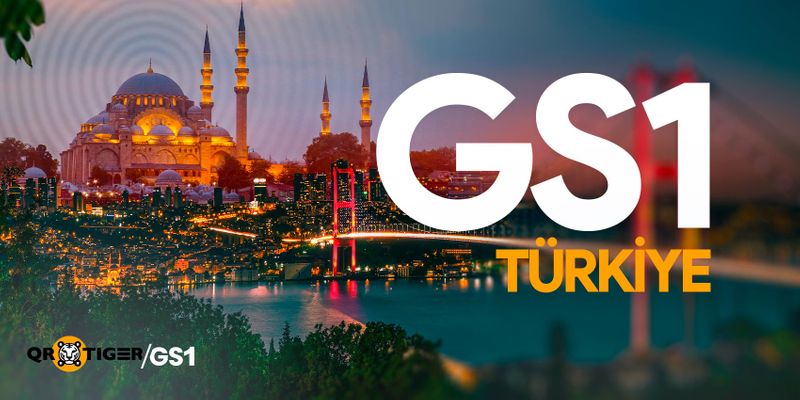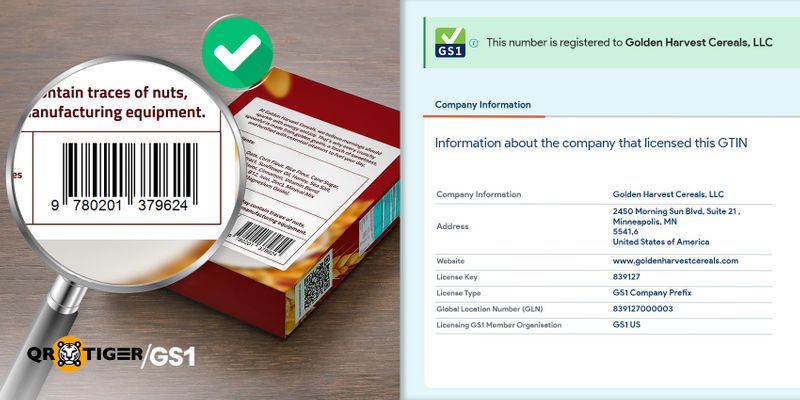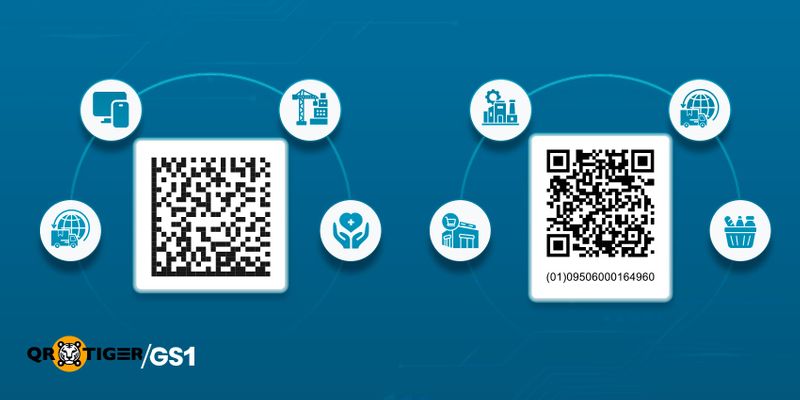GS1 Türkiye: Data Sharing Made Interoperable

Businesses have always needed to track where products come from, ensure safety, and share reliable information across borders. The methods, however, have changed as trade evolved.
In early markets, trust was built face-to-face. As trade expanded across regions, paper logs, customs documents, and physical stamps became the norm.
Today, with global supply chains and digital transactions, these same needs remain, but they require standardized systems that organize product data, improve logistics, and make supply chains more transparent.
GS1 Türkiye (TR) supports this by providing trusted global standards and digital tools that help businesses operating in Türkiye reduce inefficiencies, meet both local and international requirements, and build confidence across industries.
This blog explores how GS1 TR advances transparency, traceability, and interoperability in ways that serve modern trade while carrying forward a need as old as commerce itself.
Table of Contents
What is GS1 Türkiye?
GS1 Türkiye is the authorized representative, responsible for applying global GS1 standards across industries in Turkey. It was established within the Türkiye Odalar ve Borsalar Birliği(TOBB). which translates to the Union of Chambers and Commodity Exchanges of Türkiye. It isa confederation that serves as the highest legal entity representing the country’s private sector.
Being a part of the GS1 global network, the member organization(MO) helps businesses uniquely identify products, locations, and logistics units using global standards. The businesses thus benefit from product traceability, efficient supply chain management, and efficient data exchange between trading partners.
The organization also provides training, technical support, and tailored solutions for sectors like retail, healthcare, logistics, and e-commerce. Promoting consistent data standards helps reduce mistakes, improve operations, and strengthen consumer trust across the Turkish market.
Address: Dumlupinar Bulvari No: 252, Eskisehir Yolu 9. km, 06530, Ankara, Türkiye
Contact no: +0 850 303 14 71
Email: info@gs1tr.org
Introduced initiatives and collaborated campaigns
By partnering with industry leaders, GS1 TR helps improve supply chain visibility, support digital innovation, and expand the reach of global standards.
Türkiye’s ITS (İlaç Takip Sistemi): A Global First in Pharmaceutical Traceability
The country implemented a national Pharmaceutical Track and Trace System designed to monitor every unit of medicine across the supply chain. Using GTINs and GS1 DataMatrix barcodes, each drug is uniquely identified and scanned at each touch point.
This data is sent to the ITS database, building a verified chain of custody and ownership (CoC/CoO) for each product. The system significantly controls counterfeit drug sales, reimbursement fraud, and barcode scams, ensuring safe and reliable delivery of medicines to patients.
The ITS system is internationally recognized for enhancing transparency in the pharmaceutical sector; GS1 TR plays a key role in its successful implementation.
UTS (Ürün Takip Sistemi) Integration: Strengthening Traceability
UTS (Ürün Takip Sistemi), or Product Tracking System, is a national platform developed by Türkiye’s Medicines and Medical Devices Agency (TİTCK) to ensure full traceability of medical devices, cosmetics, and select biocidal products.
It records every product unit from manufacturing or imports to end-user delivery, helping reduce counterfeit goods, protect public health, and support regulatory oversight. The system is integrated with healthcare platforms like MEDULA and E-Nabız, facilitating real-time verification and monitoring.
GS1 TR collaborates with UTS by aligning GTINs and barcodes with Türkiye’s regulatory framework. This ensures efficient data exchange between manufacturers’ internal systems and national health databases, reducing duplication and improving compliance.
By supporting interoperability, GS1 TR helps businesses adhere to UTS requirements efficiently while improving transparency and safety across supply chains.
GS1 TR services for businesses
GS1 offers a wide range of services that help businesses revolutionize operations and foster innovation across industries.
Activate
Activate service enables businesses to generate and register unique product barcode numbers (GTINs) using their assigned Global Company Prefix (GCP). This ensures that each product variant is globally identifiable and traceable.
It supports two methods: companies can either enter product details to generate a GTIN automatically, or register a GTIN they’ve already created for a specific item.
Once activated, the GTIN and its associated product data are uploaded to GS1’s Global Registry Platform (GRP), making the product searchable in more than 117 countries. This free service ensures barcode uniqueness and compliance and also enhances product visibility across global supply chains.
Verified by GS1

This service allows brand owners and retailers to confirm the identity of a product using its Global Trade Item Number (GTIN). By verifying GTINs through GS1’s global registry, businesses can ensure that product data is standardized, accurate, and compliant with GS1 rules, reducing errors and strengthening trust across supply chains.
It simplifies data sharing, speeds up product listings, and reduces the risk of GTIN misuse. It also enhances supply chain transparency for consumers by providing reliable product information, leading to fewer returns and improving shopping experiences.
Product Verification Software
It enables GS1 member companies to share detailed product information (up to 60 attributes) with commercial partners and public institutions. This includes essential data like brand name, net quantity, label description, marketing details, and packaging dimensions, helping ensure consistency and transparency across platforms.
The system also integrates with GS1’s Global Data Synchronization Network (GDSN) via TOBBsenkron, facilitating automatic data transfer for global reach.
E-marketplaces and retailers can access this verified data to simplify product listings, enhance traceability, and support digital transformation in supply chains.
TOBBSynchronous
TOBBsenkron is a GS1-certified data pool connecting businesses to the GDSN. It enables companies to share high-quality, up-to-date product information in real time with trading partners across local and global markets.
Businesses can subscribe to TOBBsenkron to streamline data management, reduce manual errors, and speed up product launches. It also supports synchronized sharing of product content, helping companies maintain brand transparency and efficiently meet retailer requirements.
It ensures reliable, standardized data across the entire supply chain.
Traceability
Traceability service ensures that every product can be uniquely identified and tracked throughout its journey, from packaging to final sale. By using GS1 standards and automatic data capture technologies, businesses can record and access detailed product information at every stage. This makes it simpler to trace products backward and respond quickly to safety concerns.
This system is especially essential in sectors like food and healthcare, where product safety and origin transparency are critical. It helps companies meet legal requirements, locate sources of contamination, and maintain quality assurance.
It strengthens supply chain visibility and consumer trust by making product data accessible and accurate.
Data Capture
It helps businesses create high-quality product visuals and standardized data for use across retail, e-commerce, and promotional platforms. By following GS1 global standards, it helps maintain consistency in product images, measurements, and labeling, ensuring the content is ready for catalogs, planograms, and digital listings.
Companies just need to send their product samples, and GS1 TR handles tasks like capturing product images, measuring dimensions, and extracting key label information. The outcome is a verified data set that businesses can reuse and share confidently with partners, ensuring accuracy and faster time-to-market.
Cross-Border E-Commerce Support
The support helps businesses enhance global trade efficiency by using GS1 standards to uniquely identify products, packaging units, production sites, and transport containers.
This system enables accurate data collection and effective sharing across supply chains, improving traceability and operational transparency for international transactions. The service ensures that products listed on global platforms include valid GTINs and production origin details.
Applications of 2D barcodes across industries in Türkiye
Imagine that you are in a retail store where a single scan reveals not just the price of a product, but its origin, batch number, expiry date, and even a direct link to its sustainability story. This will be a reality because retailers worldwide are gearing up to adopt 2D barcodes by 2027.
Sunrise 2027 is driving the shift from traditional 1D barcodes to 2D codes (like DataMatrix and GS1 QR codes). These compact symbols can carry far more information than 1D barcodes, unlocking new possibilities for inventory accuracy, product transparency, and consumer engagement. Retail scanners are being upgraded to read both formats, ensuring a smooth transition.
The change isn’t mandatory yet. Businesses can continue using 1D barcodes unless industry or regulatory bodies require otherwise. Once 2D becomes the norm, brand owners will have options to use only the 2D barcode, use both 1D and 2D together, or continue using only the 1D barcode for checkout.
Companies gearing up for this transition to 2D barcodes face a key decision: build in-house or outsource. They can generate these codes in-house by using their resources and skills, and following GS1’s official implementation guidelines.
If they lack adequate resources or technical expertise, they can use a trusted third-party service provider, such as QR Tiger’s GS1 QR code generator.
Here are some of the key applications of these codes across industries in Türkiye:

Retail
Retailers are increasingly adopting 2D barcodes, like QR codes with GS1 Digital Link syntax, which connect physical products to digital content. These codes allow consumers to scan items and access verified product details (such as ingredients, usage instructions, allergens, and sustainability certifications) directly from the packaging.
The country’s retail sector is preparing for the transition to 2D barcodes by upgrading scanners and educating brands on dual-marking strategies, where both 1D and 2D barcodes coexist during the migration period.
Logistics & Warehousing
In logistics, GS1 TR promotes the use of 2D barcodes to encode pallet information, shipment IDs, and location data. These codes reduce manual errors, improve scan accuracy, and support automation in warehouses and distribution centers.
Scan4Transport is a GS1 global standard that enables logistics and transport providers to embed essential shipment details, such as delivery location, hazardous goods information, and handling instructions into a compact 2D barcode printed on the logistics label.
By embedding GS1-compliant data into 2D barcodes, logistics providers can optimize cross-border operations and boost visibility across the supply chain.
Healthcare
Türkiye’s pharmaceutical sector was the first globally to adopt GS1 DataMatrix barcodes in medicine packaging. These barcodes facilitate unit-level identification and tracking. Hospitals and pharmacies scan the 2D barcode at each stage, ensuring safe delivery and possibly reducing counterfeit drugs.
Food & Beverage
Food producers and retailers are using 2D barcodes to share traceability and nutritional data with consumers. By scanning a product’s QR code, consumers gain access to key details like harvest date, origin, and whether it meets sustainability standards. This transparency builds consumer trust and supports informed choices.
For example, the GS1 Digital Link QR code allows brands to update product information dynamically, without changing the packaging. This flexibility is helpful for seasonal items, promotional campaigns, and regulatory updates in the food industry.
Success story: Migros
Migros has long been recognized as a pioneer in retail innovation. In the early 1990s, it became the first retailer in Turkey to implement GS1 barcodes on its products, initiating a shift that accelerated the adoption of GS1 supply chain standards across the entire Turkish retail industry.
Migros partnered with GS1 TR to implement the Verified by GS1 service across its product ecosystem. This retailer required all suppliers to register their products with valid GTINs (Global Trade Item Numbers) and submit them to the Verified by GS1 database.
This initiative helped eliminate data inconsistencies, reduce listing errors, and strengthen consumer trust through accurate product information.
Migros also encouraged suppliers to adopt the GS1 Global Data Model, optimizing product data exchange and improving operational efficiency. This collaboration helped Migros become a leader in digital transparency and set an example for other retailers in the country.
Empowering Türkiye’s Businesses with Standardized Data
GS1 Türkiye plays a key role in strengthening digital trust across supply chains by offering globally aligned standards for product identification, traceability, and data integrity. Its services enable Turkish businesses to share accurate, verifiable product data, supporting compliance, safety, and operational efficiency across sectors.
Fostering collaboration with industry leaders and government bodies empowers companies to embrace digital transformation confidently. Joining GS1 TR helps businesses connect to a growth-ready, transparent ecosystem.
Frequently asked questions
What makes GS1 barcodes essential for businesses operating in Türkiye?
GS1 barcodes allow businesses to uniquely identify and track products across the country's supply chain. They are necessary for inventory management, retail checkout, and regulatory compliance.
They support international trade by aligning with customs and export systems, helping Turkish businesses stay competitive in global markets.
What is a GS1 Company Prefix, and how do I get one?
A GS1 Company Prefix is a unique number assigned to a business by GS1. It forms the foundation for creating globally unique identifiers like GTINs, SSCCs (Serial Shipping Container Code), and GLNs (Global Location Numbers). This prefix ensures that your product codes are recognized globally.
To get a GS1 Company Prefix, here are steps that businesses can follow:
- Register with local GS1 MO where your business operates by visiting their official websites.
- Fill out an online application form, submit business documents (such as proof of address, identification document, and business registration proof)
- Identify the number of barcodes needed.
- Pay registration and subscription fees.
- Once approved, GS1 assigns the Company Prefix.
Can 2D barcodes improve customer experience?
Yes, 2D barcodes with GS1 Digital URI allow brands to connect physical products with digital content. Consumers can scan a GS1 QR code to access verified product details, promotional offers, or sustainability info.
This builds brand loyalty, improves transparency, and supports the country’s e-commerce and omnichannel retail landscape.
DISCLAIMER: We acknowledge that GS1, as well as the materials, proprietary items, and all related patents, copyright, trademark, and other intellectual property (collectively, “intellectual property”) relating to its use, are the property of GS1 Global, and that our use of the same shall be in accordance with the conditions provided by GS1 Global.




